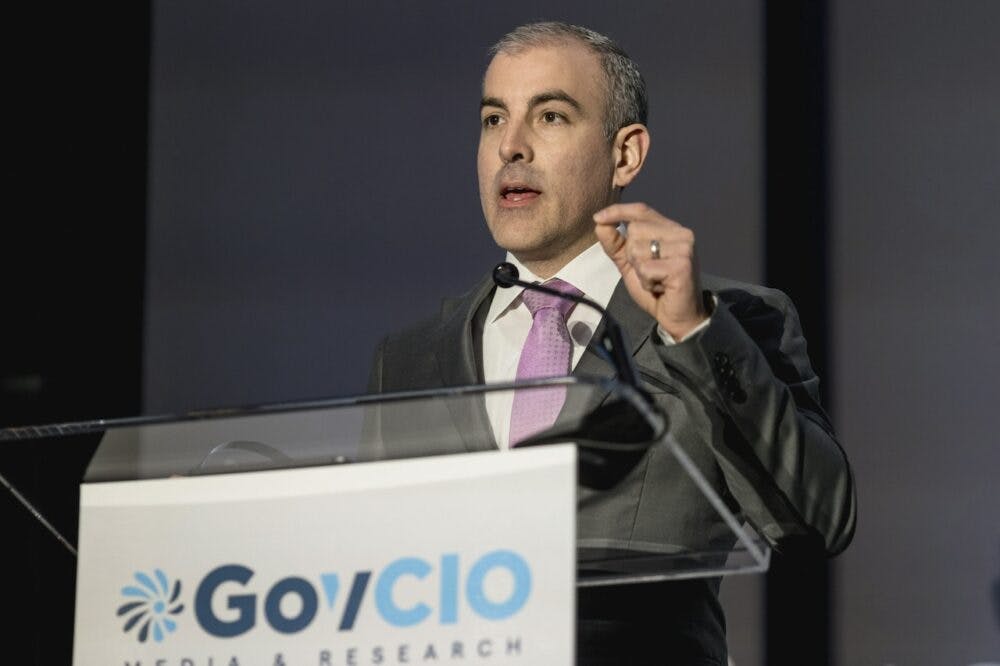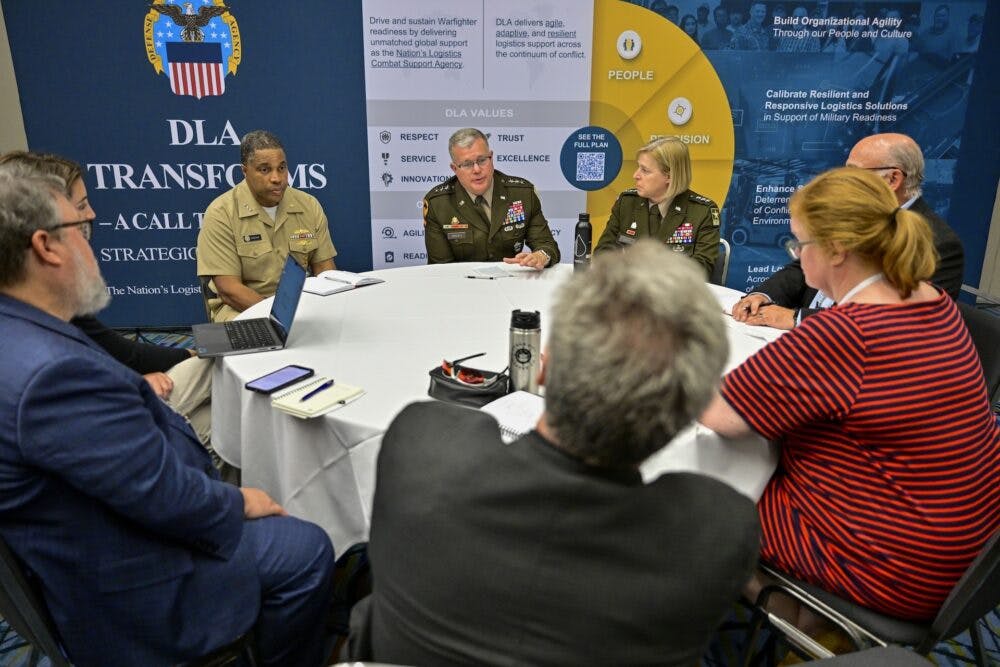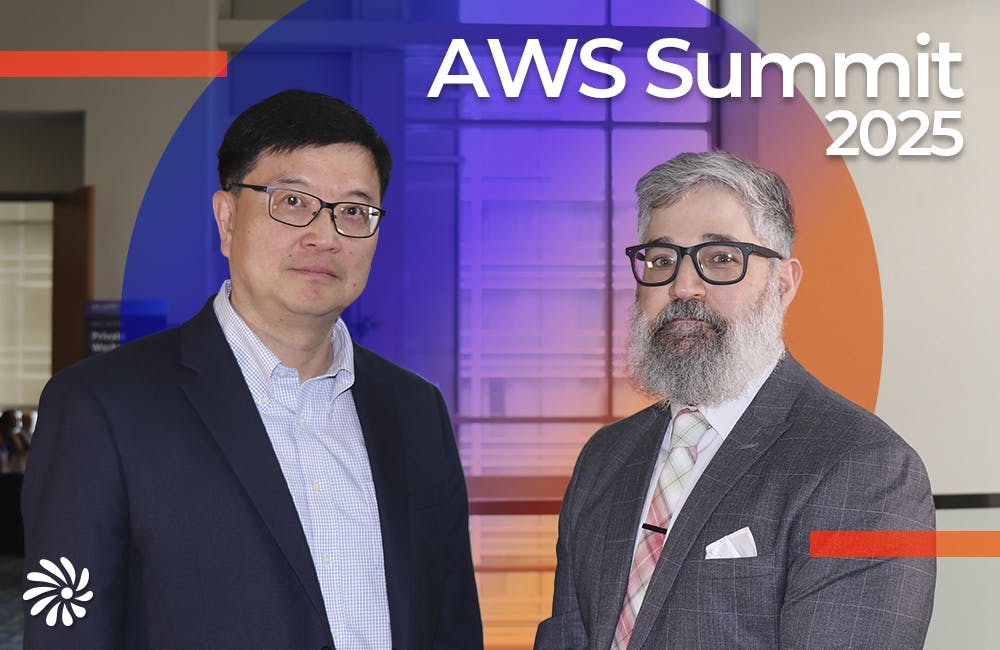IRS Sets Sights on Data, Cyber in Next Phase of Modernization Plan
As the IRS nears the mid-point of its six-year modernization plan, the agency’s CIO maps out priorities for the future.

The IRS is nearing the end of its two-part modernization plan first phase, a thee-year journey that set the infrastructural and digital foundation upon which the IRS will build on in the second phase throughout fiscal years 2023 to 2025.
As for what will occur in phase two, IRS CIO Nancy Sieger hinted at some of the near and far future modernization initiatives that her agency will embark on next during an FCW virtual event Tuesday. More specifically, she highlighted three key main modernization features for the agency: data, cybersecurity and digital services.
“I believe that the keystone to success in a digital environment is strong cybersecurity and a strong data strategy,” Sieger said. “Data continues to be one of our most significant assets, and IRS information technology is unlocking the power of data by delivering a state-of-the-art enterprise data platform that improves access to data and enables more self-service reporting. That will be something you’ll see heavily in the next iteration of our modernization plan. We will then move into the use of analytics and AI in our space.”
Sieger added that a strong foundation around data can enable better analytics and testing capabilities. Advancements in the agency’s data capabilities and respective testing are allowing the IRS to better prepare for its filing season in the winter.
Recently, the IRS has been putting the “final touches” on its changes to the filing system for the coming tax season, and the agency will enter its testing phase. Sieger said this will lead to improved self-service options with the digital filing space for taxpayers — strides that were made possible due to funding from the American Rescue Plan.
“A lot of that expansion is in the digital space,” Sieger said. “We have accelerated some of the self-service options through your online account. We have accelerated our new secure access system, enabling more citizens to authenticate with the IRS. We have accelerated our multilingual delivery of our services, and next year we will keep … our modernized e-file system open 24-7.”
Improvements in the coming year will include an expansion in taxpayers’ ability to upload pictures of tax documents via computers and mobile devices, and in the message center, taxpayers will be able to opt-in to receiving electronic or opt-out of receiving paper notices.
In terms of cybersecurity, Sieger acknowledged that the current technological environment has created new challenges in the cybersecurity space for federal agencies, so the IRS will be focusing on implementing systems to keep taxpayer information secure.
“Cybersecurity continues to be our constant focus,” Sieger said. “We’ll be moving taxpayer-facing applications to a modernized identity-proofing system … which has more robust security and more help for those citizens and engaging in that new way of authenticating.”
More broadly, the IRS will also be adopting modern cybersecurity practices and architectures, such as zero trust.
“We’re also continuing to focus on protections against external threats through implementing a zero trust architecture,” Sieger said. “If fact, when you look at our modernization plan, you will see many of our cybersecurity high-level focus areas — zero trust architecture, data encryption on our system — so our employees know that security’s first. That is just as important to us as increasing our velocity — increase our security and staying ahead of threats.”
This is a carousel with manually rotating slides. Use Next and Previous buttons to navigate or jump to a slide with the slide dots
-

DOD Can No Longer Assume Superiority in Digital Warfare, Officials Warn
The DOD must make concerted efforts to address cyber vulnerabilities to maintain the tactical edge, military leaders said at HammerCon 2025.
4m read -

Tracking CIOs in Trump's Second Term
Stay informed on the latest shifts in federal technology leadership as new CIOs are appointed and President Trump's second term takes shape.
6m read -

DHA CDAO Spearheads Master Data Catalog to Boost Transparency
Jesus Caban plans to boost DHA's data maturity through a new master data catalog, governance frameworks and inventory of tech tools.
5m read -

IRS Makes Direct File Code Public as Lawmakers Debate Program’s Fate
The agency sees the Direct File source code as beneficial to government digital services despite what happens with it in proposed budgets.
5m read -

Inside Oak Ridge National Lab’s Pioneer Approach to AI
Energy Department’s Oak Ridge National Lab transforms AI vulnerabilities into strategic opportunities for national defense.
22m listen -

A Look at Federal Zero Trust Transformation
Recent developments from CISA and DOD show how government is advancing zero trust quickly.
20m read -

New Army Acquisition Plan Cites Autonomy, Predictive Analytics
Officials outline how the Army Transformation Initiative signals a broader shift toward efficiency with tech and acquisition reform.
4m read -

DOE National Labs Launch New AI Tools for Operational Efficiency
The Energy Department's National Laboratories are using AI to increase operational efficiency and drive research efforts forward.
3m read -

AWS Summit: Innovation Accelerates IT Delivery at DOD
Marine Corps Community Services is tackling outdated IT processes with agile development and cutting-edge cloud security to deliver mission-critical capabilities faster.
12m watch -

AWS Summit: NIST Secures High-Performance Computing Against Evolving Threats
NIST’s Yang Guo reveals the broad attack surface of high-performance computing and explains developing guidance and future-proofing security strategies.
9m watch -

Trump Overhauls Federal Cybersecurity with New Executive Order
The new directive aims to strengthen digital defenses while rolling back "burdensome" software requirements and refocusing AI security.
3m read -

AWS Summit: Forging Successful Cloud Modernization Partnerships
Industry leaders share insights on the critical role industry partnerships have in enabling government agencies to navigate procurement challenges for cloud and zero trust solutions.
24m watch Partner Content
















